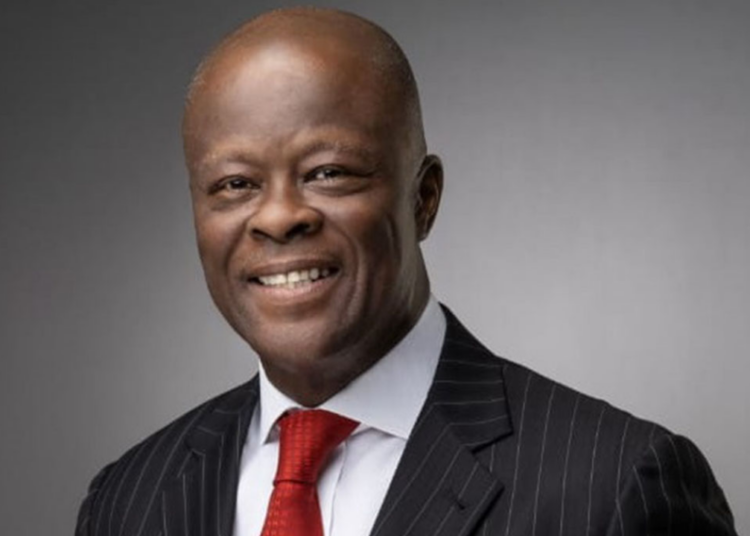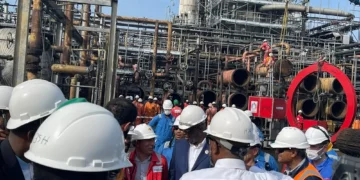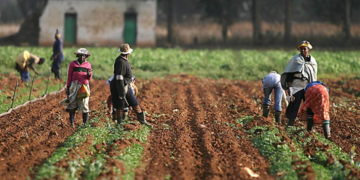The minister of Finance and coordinating minister for the economy, Wale Edun, has said Nigeria needs to explore climate financing to shore up revenue to fund the 2024 Budget.
This is just as the Senate has warned it will not tolerate lackadaisical attitude from government functionaries in all Ministries, Departments And Agencies (MDAs) in relation to issues surrounding their defence submissions, given resolve to maintain the January to December budget cycle.
But speaking during a one-day retreat on the 2024 Appropriation Bill organised by the Senate Committee on Appropriations with the theme: “Budget and Budgetary Process: Improved Outcomes in 2024,” Edun, while acknowledging that Nigeria’s fiscal space was exhausted in line with the position of the International Monetary Fund (IMF), proposed a strategic shift towards concessional funding including climate financing as a viable solution.
“Nigeria’s fiscal space is exhausted, we have to focus on the concessional funding, the cheaper funding, even free funding and climate financing is the way.
“Solution is that we have to focus on concessional funding, cheaper funding, even free funding, and climate financing is the way”.
He highlighted the urgency of addressing the fiscal constraints and reducing dependence on borrowing, particularly foreign borrowing.
Edun pointed out that with an estimated $1 trillion annually to be spent on climate change, emphasised the significance of climate financing in funding the N27.5 trillion budget.
“Just yesterday UAE announced $30 billion dollars for climate action. What that means is that as we look to fund the N27.5 trillion budget this year, our first port of call must be the cheapest and the most concessionary financing including climate financing.
“We have to be brave, courageous, innovative to make sure that we use the financial market to take the stress down, to reduce our debt servicing, to reduce our emphasis on borrowing,” Edun said.
The minister highlighted recent strides, including the signing of a 100 million euros foreign direct investment for reforestation of mangrove forests in Cross River.
He underscored the importance of maximising existing assets without resorting to excessive borrowing.
The minister also mentioned the possibility of leveraging countries and organisations willing to allow funding based on their credit ratings which could alleviate debt service burdens for Nigeria.
Edun further emphasised the need for Nigeria to quickly optimise its resources aligning with the changing global dynamics that emphasised equity over excessive debt.
The minister expressed hope for a swift passage of the budget, signalling a proactive approach to addressing the nation’s financial challenges.
In his remarks, president of the Senate, Sen. Godswill Akapbio said that Nigeria would not achieve much, unless the country increased revenue.
He urged all revenue agencies in the country to do more and block all revenue leakages.
“No matter how beautiful the budget is , if there is no money to spend, the budget will not work.
‘Let’s get up and block the loopholes of leakages and wastages and then bring more revenue so that the 2024 budget becomes realistic”, he said.
The senate president assured that the National Assembly was determined to pass the budget on record time ” “and we will continue to ensure the January to December budgetary cycle”.
But the Senate, while stating it will not tolerate lackadaisical attitude from government functionaries in all MDAs
Speaking through the deputy President of Senate, Barau Jibril, the Senate said the consequences of sabotaging the envisaged passage of the 2024 budget by any top official of any MDAs may not be palatable for the official or agency in the eventual passage of 2024 Appropriation Bill.
He said the 2024 appropriation bill was undoubtedly an event of significant national importance.
He said the importance was rooted in the fact that it was another step in the 10th National Assembly’s commitment to ensuring an all-inclusive budget process for greater national good and achieving the nation’s commitment to Jan – Dec budget cycle.
He commended the Chairman and members of the appropriations committee, to open up the 2024 budget process for stakeholders’ engagement and feedback through the one-day retreat.
Senator Akpabio said stakeholders gathered were in the business of making sacrifices on behalf of the people and committed to brainstorming, researching and proffering various suggestions and solutions on behalf of the Nigerian populace.
He expressed confidence that such continuous partnership and deliberations would add substantial value to the nation’s legislative work of enacting laws for good governance and the interest of our people.
He also commended all relevant state and non-state actors for their interests and sacrifices in ensuring that the participatory processes of public engagements, geared towards a better outcome of the law-making are smoothly executed.
“We understand that the budget is about fiscal targets, resource allocation, public expenditure policy, productivity and efficiency. We also understand that the process is one of passage, mobilisation and execution, as well as, effective monitoring and evaluation”he said.
The Nigerian Senate President urged the stakeholders to be open-minded, honest and factual in their deliberations, saying that there was a need to understand that Nigerians have a common goal, which was to drastically improve the socio-economic condition of the people in the shortest period with the budget of renewed hope.
He expressed confidence that the retreat would be a productive one.
A resource person and an economist from University of Ibadan, Oyo State, Professor Ayo Teriba who delivered a short lecture on identification of processes to guide the desired achievement in 2024 budget, gave an appraisal of 2023 budget appraisal and 2024 proposal.
He said the attainment and surpassing of the revenue of 2023 as at September was unprecedented and a great achievement for the current administration.
This, he said, was an indication that the projected N18trillion expected revenue in the 2024 budget was realistic.
Professor Teriba also advised that tax revenue generation should not be the main focus of government toward revenue generation but efforts should be tailored on leveraging non tax revenue, asset revenue generation, with specific areas to attract foreign direct investments to increase revenue streams to the nation.
He said every MDAs need to develop a workable window for creating opportunities for inflow of domestic and foreign direct investments for sustainable revenue generation.
“Every MDA should know and understand the processes to reassure investors of risk mitigation. This would result in business deals that would ultimately yield the desired finances for the nation’s budgetary needs” he said.
Professor Teriba also said that there was a need for more improvements of the capital component of the budget and improvement on its assets, and to attract foreign direct investment.
Earlier, Chairman of the Senate Committee on Appropriations, Senator Solomon Adeola, said the retreat would afford stakeholders the opportunity to contribute meaningfully toward the realisation of the renewed hope budget 2024.
He said the National Assembly was committed to ensuring that there was value for every fund appropriated in the 2024 budget.
We’ve got the edge. Get real-time reports, breaking scoops, and exclusive angles delivered straight to your phone. Don’t settle for stale news. Join LEADERSHIP NEWS on WhatsApp for 24/7 updates →
Join Our WhatsApp Channel










